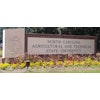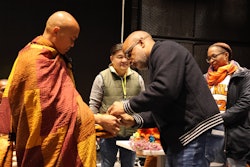The Institutional Grants for New Infrastructure, Technology and Education (IGNITE) for HBCU Excellence Act aims to address long-standing infrastructure issues at the nation’s historically Black colleges and universities.
 Rep. Alma S. Adams
Rep. Alma S. Adams
Rep. Alma S. Adams, D-NC, has been the driving force behind the act. Having earned her bachelor’s and master’s degrees at an HBCU, North Carolina A&T State University, before going on to earn a doctorate at Ohio State University, Adams understands the power and purpose of historically Black institutions. After being elected to Congress in 2014, she established the HBCU Caucus, which is bipartisan and now has 108 members from the House of Representatives and Senate.
John Christie, Adams’ chief of staff, says his boss wanted to “start a national dialogue” around HBCUs that would help “pass meaningful bipartisan legislation” to address issues that plague them.
“She understands that a lot of the things we want our HBCUs to be able to do — whether it be in research and development or the simple task of preparing students for the 21st century workforce — can’t be done if you have dilapidated infrastructure that’s not modernized,” says Christie.
While HBCUs represent only about 3% of all four-year colleges and universities, they produce approximately 17% of all bachelor’s degrees earned by African Americans. First-generation and low-income students comprise almost 60% of the student bodies. Approximately 27% of Black students earning degrees in STEM (science, technology, engineering and mathematics) fields come from HBCUs.
Needs














